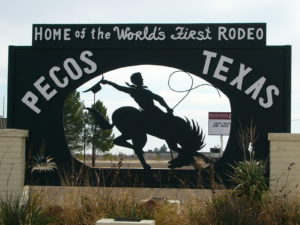 While affirming a relatively straightforward judgment in a home loan dispute, the Fifth Court observed: “The unjust enrichment doctrine applies principles of restitution to disputes where there is no actual contract and is based on the equitable principle that one who receives benefits which would be unjust for him to retain ought to make restitution.” Ihde v. First Horizon Home Loans, No. 05-15-01084-CV (Nov. 28, 2016) (mem. op.) (emphasis added) A counterpoint in this practical but rarely-visited area of remedies law appears in City of Harker Heights v. Sun Meadows Land Ltd., 830 S.W.2d 313, 317 (Tex. App.–Austin 1992, no writ), which observes: “An action for money had and received may be founded upon an express agreement or one implied in fact, but it is not dependent upon either.” (emphasis added).
While affirming a relatively straightforward judgment in a home loan dispute, the Fifth Court observed: “The unjust enrichment doctrine applies principles of restitution to disputes where there is no actual contract and is based on the equitable principle that one who receives benefits which would be unjust for him to retain ought to make restitution.” Ihde v. First Horizon Home Loans, No. 05-15-01084-CV (Nov. 28, 2016) (mem. op.) (emphasis added) A counterpoint in this practical but rarely-visited area of remedies law appears in City of Harker Heights v. Sun Meadows Land Ltd., 830 S.W.2d 313, 317 (Tex. App.–Austin 1992, no writ), which observes: “An action for money had and received may be founded upon an express agreement or one implied in fact, but it is not dependent upon either.” (emphasis added).
Monthly Archives: November 2016
 I was on the trial team that won a $146 million verdict in Pecos, Texas last week; here is the Dallas Morning News’s recent story on the case.
I was on the trial team that won a $146 million verdict in Pecos, Texas last week; here is the Dallas Morning News’s recent story on the case.
 Plaintiffs won a lawsuit against their landlord about the handling of their security deposit. The Fifth Court affirmed, reversing only as to prejudgment interest. While the parties’ lease said that “[a]ny person who is a prevailing party in any legal proceeding brought under or related to the transaction described in this lease is entitled to recover prejudgment interest,” the plaintiffs recovered based on section 92.109(a) of the Property Code, which allows recovery of statutory penalties in the event of a landlord’s bad faith retention of the security deposit. Because “[p]rejudgment interest does not apply to statutory penalties imposed for wrongdoing,” and the underlying statute did not provide for recovery of prejudgment interest, the interest award could not stand. Frazin v. Sauty, No. 05-15-00879-CV (Nov. 6, 2016) (mem. op.)
Plaintiffs won a lawsuit against their landlord about the handling of their security deposit. The Fifth Court affirmed, reversing only as to prejudgment interest. While the parties’ lease said that “[a]ny person who is a prevailing party in any legal proceeding brought under or related to the transaction described in this lease is entitled to recover prejudgment interest,” the plaintiffs recovered based on section 92.109(a) of the Property Code, which allows recovery of statutory penalties in the event of a landlord’s bad faith retention of the security deposit. Because “[p]rejudgment interest does not apply to statutory penalties imposed for wrongdoing,” and the underlying statute did not provide for recovery of prejudgment interest, the interest award could not stand. Frazin v. Sauty, No. 05-15-00879-CV (Nov. 6, 2016) (mem. op.)
The first rule of confidential settlements is: we don’t talk about confidential settlements
November 4, 2016GDL Masonry Supply, Inc. v Lopez and Rapid Masonry Supply, Inc. (November 2, 2016) is a handy opinion to hand your clients after they sign a settlement agreement requiring confidentiality. It is a risk too many clients do not take seriously enough (see, e.g., “Girl costs father $80,000 with ‘SUCK IT’ Facebook post“).
In GDL, the Dallas Court of Appeals affirmed summary judgment in favor of Rapid, the plaintiff, who refused to pay under a settlement agreement because GDL failed to satisfy the confidentiality requirements of the agreement. The facts were too common. GDL brought suit against Rapid, which settled by way of an agreement that required confidentiality and Rapid to make a series of $10,000 payments totaling $60,000 to GDL. GDL then told a third party that Rapid had stolen from it, that GDL won the lawsuit, and that Rapid owed GDL money as a result. When Rapid discovered what GDL said about their litigation, it sued asserting that it had no obligation to make the remaining settlement payments and also seeking attorney’s fees for breach of the confidentiality language. The trial court granted summary judgment to Rapid, holding that the confidentiality provision was breached, that Rapid had no obligation to make further payments, and awarding attorney’s fees.
GDL’s argument on appeal did not deny the disclosure of the settlement, but instead challenged the materiality of the confidentiality provision. The Dallas Court of Appeals made swift work in rejecting this argument, noting that the settlement agreement itself stated that the confidentiality paragraph “is a material provision of this Agreement and that any breach of the terms and conditions of [the paragraph] shall be a material breach of this Agreement.” The Court held that the contract’s language was binding.
GDL Masonry Supply, Inc. v Lopez and Rapid Masonry Supply, Inc.
